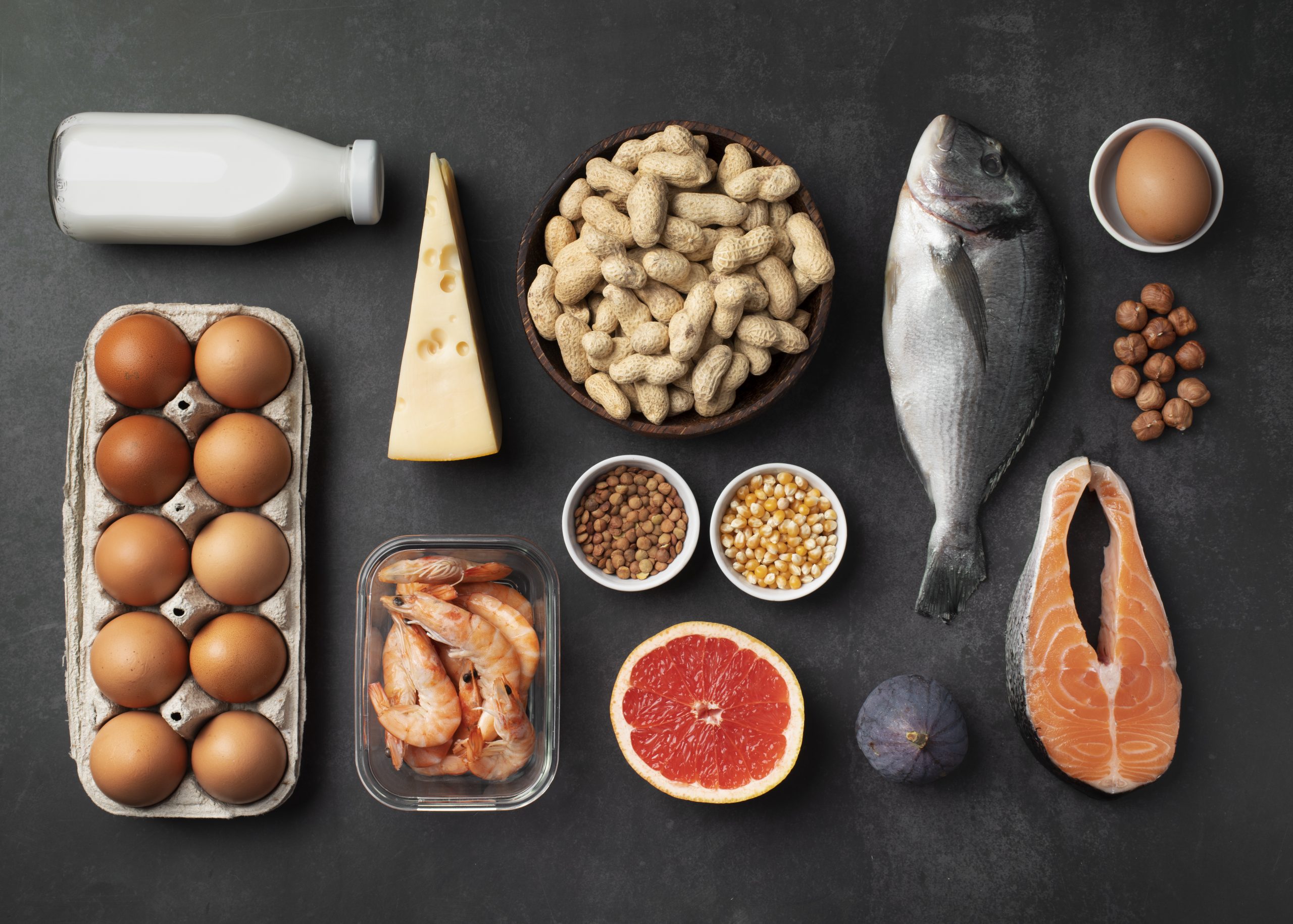
Mar 16, 2023
Protein and Its Importance for Weight Loss and Growing Muscles
While most people are aware of the hypertrophic properties of the protein, a lot of them are unaware of its potential lipolytic properties.
This macronutrient is integral for many biochemical and structural functions in the body. The World Health Organization (WHO) emphasizes the importance of sticking to at least 25% protein intake per day.
Unfortunately, most of the Indian population gets less than 15% protein from their total caloric intake, contributing to weight gain and loss of lean muscle mass.
In this article, we will address the primary functions of protein in the body and how it promotes muscle hypertrophy and weight loss.
The role of proteins in the body
Proteins are vital in the body, facilitating various reactions to build tissues, mediate biochemical processes, and compose hormones.
The British Nutrition Foundation (1) recommends a daily protein intake of at least 50 grams to maintain lean muscle mass and reduce fat deposition. However, athletes should calculate their intake based on body weight, as their lean muscle mass could be significantly higher than regular individuals.
A reasonable target is to consume at least 0.7 grams of protein per pound of body weight.
Consuming proteins also comes with a caveat – It has a high thermic effect, meaning that more energy is required to break them down in the gastrointestinal tract. Research (2)indicates that 20-30% of all calories in protein get burned during protein digestion, significantly higher than the 5-10% required for sugar and the 0-3% required for fat. Moreover, the increased thermic effect of proteins and its satiety-inducing properties can lead to substantial weight loss (3) even without physical activity.
What are whey proteins?
Whey proteins, a byproduct of cheesemaking, are among the richest sources of branched-chain amino acids (BCAAs). More specifically, whey contains leucine (4), an amino acid abundant in whey protein.
This amino acid is particularly effective in promoting muscle growth and accelerating post-exertional tissue repair. Widely regarded as the go-to product for muscle growth in bodybuilding and resistance training, whey proteins have proven their efficacy in enhancing performance, energy production, and muscle hypertrophy through numerous clinical studies and laboratory experiments.
How does protein contribute to weight loss?
The protein mediates lipolysis (i.e., fat burning) and weight loss in a variety of ways, including:
- Hormonal regulation
When your system has appropriate protein levels (11), hormones, such as GLP-1, peptide YY, and cholecystokinin, will get upregulated, eventually suppressing ghrelin and leptin.
Both ghrelin and leptin are responsible for triggering hunger feelings, which explains why high protein intake reduces caloric intake (you’ll be full all the time).
2. The high thermic effect
As mentioned above, the energy required to digest proteins is multiple times that of other macronutrients.
In other words, consuming protein-rich foods will make you burn calories to break them down, contributing to weight loss.
3. Prevention of metabolic slowdown
The basal metabolic rate (BMR) slowdown is your number one enemy when trying to lose weight.
Luckily, protein can upregulate certain metabolic pathways (5) to maintain the peak function of your hepatocytes and myocytes. Eventually, this will prevent the decline in caloric expenditure.
This process is also indispensable for your myocytes to grow.
4. No more late-night cravings
In one study (6), scientists compared a regular diet to a high-protein diet to see which is more effective at inducing weight loss. As a result, all participants had a BMI over 25.
The study results showed that the group of men who consumed large amounts of protein had a 60% decrease in late-night cravings for food.
Researchers settled for 25% protein intake from the total daily calories, which is not above the recommended ratio.
The side effects of taking large amounts of proteins
Many people worldwide associate high protein intake with kidney damage and osteoporosis (i.e., fragile bones).
While these statements hold some truth, they do not represent the whole story.
For instance, proteins may damage kidney function only in individuals with advanced renal pathologies (7). The primary exacerbating factors of renal disease are diabetes (8) and chronic blood hypertension (9); both conditions benefit from high protein intake.
As for osteoporosis, people think that proteins will increase the body’s acidity, which stimulates the breakdown of bone tissue.
Fortunately, there is no scientific evidence that supports these claims. If anything, researchers(10) repeatedly demonstrated findings that protein intake optimizes bone health.
Best vegan protein sources
Soy products (e.g., Tofu, tempeh, edamame)
Soy products are on top of the list regarding protein content, and most people on a plant-based foods diet love these products.
Note that the amount of protein in soy products varies, depending on how you prepare the dish.
Here are some numbers:
- Tofu provides approximately 10 grams per 1/2 cup serving.
- A serving of tempeh, which is 1 cup or 166 grams, provides roughly 31 grams. This amount may decrease slightly when tempeh is cooked.
- Cooked edamame, equivalent to 1 cup, offers about 17 grams.
Lentils
½ cup of cooked lentils contains 8.84 grams of proteins, which is quite considerable. Additionally, red and green lentils are rich in fibre, iron, and potassium.
Some scientific evidence demonstrates the benefits of consuming lentils in preventing iron-deficiency anaemia.
Quinoa
Quinoa is a grain that can be incorporated into many dishes, including salad, chicken, and rice. It is rich in protein, with one cup of cooked quinoa containing up to 8 grams of protein.
Other nutrients, such are fibre, iron, magnesium, and manganese, are also high in quinoa.
Takeaway message
Protein is a vital macronutrient that mediates numerous bodily functions, such as building muscles, losing fat, and ensuring biochemical reactions.
Hopefully, this article convinced you of this nutrient’s importance and why you should do everything possible to reach the daily recommended requirement, or at the very least, supplement your body with whey proteins.
References:
- https://www.nutrition.org.uk/healthy-sustainable-diets/protein/?level=Health%20professional
- https://pubmed.ncbi.nlm.nih.gov/3510362/
- https://pubmed.ncbi.nlm.nih.gov/3510362/
- https://pubmed.ncbi.nlm.nih.gov/3510362/
- https://pubmed.ncbi.nlm.nih.gov/3510362/
- https://pubmed.ncbi.nlm.nih.gov/3510362/
- https://pubmed.ncbi.nlm.nih.gov/3510362/
- https://pubmed.ncbi.nlm.nih.gov/3510362/
- https://pubmed.ncbi.nlm.nih.gov/3510362/
- https://pubmed.ncbi.nlm.nih.gov/3510362/
- https://www.ncbi.nlm.nih.gov/pubmed/16400055/